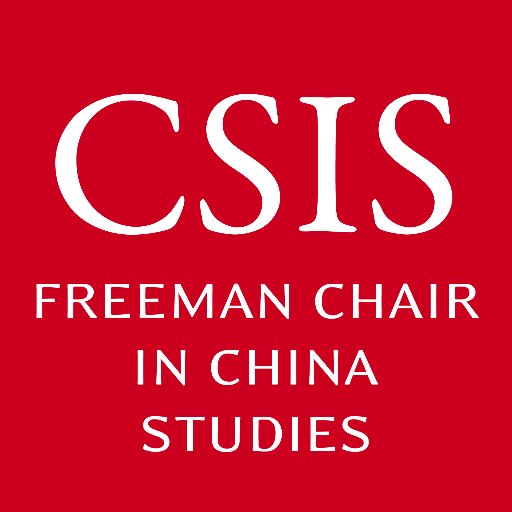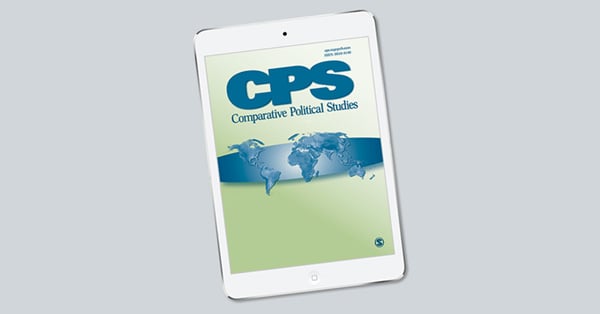
Ning Leng
@leng_ning
Followers
3K
Following
913
Media
1
Statuses
264
Asst Prof @Georgetown @McCourtSchool #WilsonChinaFellows | China, political economy, authoritarianism, China in LatAm | Author of Politicizing Business
Washington, DC
Joined August 2018
My new book, *Politicizing Business*, releases today @CambridgeUP! Central theme: in China’s political economy, the Party-state systematically enlists businesses to serve its political needs and those of its officials. The politicization of business is rooted in authoritarianism
amazon.com
The Chinese state has never granted businesses full autonomy, even amid efforts to establish market-supporting institutions. Instead, the state and its officials view business as primarily political...
12
46
194
I had a wonderful time discussing the political costs of doing business in China w/t @rachel_cheung1 @thewirechina. One of the topics I covered was how Chinese government officials run "selectoral campaigns" and why firms are reluctant to act as "campaign donors." I also
thewirechina.com
Scholar Ning Leng explains how Chinese government officials tap companies to provide political services.
0
3
12
Join us online 10 November 3:30pm CET to hear Ning Leng talk about academic control and self-censorship in China. There will be Q&A after the talk.
giga-hamburg.de
How does state censorship contribute to self-censorship in Chinese universities and in turn affect academic output? Using interviews and analysis of over 5,000 hand-coded publications of scholars in...
0
1
3
Adding some sound to my book through this great podcast. I talk about why private firms often lose out to SOEs in providing political services in China—and how the Party-state’s demand for “loyalty” drives officials to stay within narrow limits but overdo things inside them,
In this new episode of Pekingology, @Henrietta_Ivy joins guest @leng_ning to discuss her new book "Politicizing Business: How Firms Are Made to Serve the Party-State in China" and explore what the Party really wants from Chinese firms. https://t.co/MvfQtCQkLR
0
20
87
I will also be giving a public talk tomorrow at Princeton University. Join us if you are in town!
eap.princeton.edu
The Chinese state has never granted businesses full autonomy, even amid efforts to establish market-supporting institutions. Instead, the state and its officials view business as primarily political...
0
0
1
2. Politicizing Business was featured on the Campaign for the American Reader’s “Page 99 Test,” which asks: if you open a book to page 99, does it capture the idea of the whole book? It was fun writing this short piece.
1
0
2
More info about my book, Politicizing Business, for those who want a quick overview: 1. My brilliant colleagues @McCourtSchool put together a great intro and author Q&A, where I discuss why the Chinese state almost inevitably over-interferes in the market, implications for
mccourt.georgetown.edu
McCourt School Assistant Professor Ning Leng answers 3 Questions on her new book, Politicizing Business: How Firms Are Made to Serve the Party-State in China.
3
8
45
Enter "LENG2025" for a 20% discount from Cambridge University Press' website:
0
0
0
Finally, a big thank you to my teachers, friends and colleagues that helped make this book possible. It was incredibly fun to write a book. 7/7
0
0
3
I illustrate these patterns with two sectors: urban buses and waste treatment in Chinese cities. Even firms in ostensibly nonstrategic sectors experience politicization, to say nothing of others. Politicizing business distorts resource allocation and company incentives,
1
0
7
The outcome of politicizing business is often adverse. If political services resemble “bribes,” firms welcome them and state-business collusion follows. If they resemble “regulations,” firms—especially private ones—resist the high costs that they cannot recover. Resistance
1
0
3
The Party-state employs both carrots and sticks to make companies comply. Subsidies, government contracts, and turning a blind eye to cost-saving measures serve as the carrots. The sticks are even more numerous, beginning with potential violations of various laws—most often tax
1
0
2
The second political service is societal control. Firms may supply money and manpower to help manage protests. Private companies often make useful scapegoats, while SOEs serve as trusted allies. The state favors one or the other according to the strategy pursued—cooptation or
1
0
3
Beyond employment, surveillance, censorship, and rents, I highlight two further political services: “visibility projects” and societal control. In China’s economy, infrastructure and urban planning, “visibility projects” are everywhere—oversized, overfunded ventures meant to
1
0
8
Please join me on 9/26 at CPRP! I’ll be presenting my research on Communist Party cells in Chinese firms. Many thanks to my discussants @timothymfrye and @leng_ning
CPRP is delighted to welcome our first presentation in Fall 2025. Ye Zhang (MIT) will present her paper entitled "Political Control in the Workplace: How Autocrats Use Firms to Discipline Citizens" on Sep. 26 at 10-11AM (PST) / 12-1PM (CST) / 1-2PM (EST). https://t.co/HU6hUW2fsq
0
3
27
The Party’s Interests Come 50% off! From now through September 8, you can get my biography of Xi Zhongxun, the father of Xi Jinping, for only $25 on the Stanford University Press website. https://t.co/StvAjvKHgD
Huge thank you to Robert Zoellick for this very generous review of my Xi Zhongxun biography for @WSJ https://t.co/DCPgw5IAm0
6
17
86
"The court decision is a first step... but without an overhaul of China’s social insurance system, it is unlikely to be sufficient [to boost consumption]."
My latest column @WPReview examines the bombshell Supreme Court decision to disallow opting out of China's social insurance program. Policy wonk heaven but also important for debates in China about inequality and redistribution. Big story in China. 1/7
0
1
0
Congratulations, Xiaobo!
The CCP’s triumph over the KMT shocked the world—even the Soviets bet on the KMT with more aid. My book, Domination and Mobilization, asks: how did the CCP survive and prevail? 👇 #ChineseHistory #CCP #KMT #ChinesePolitics #AuthoritarianPolitics #PoliticalHistory #PartyBuilding
1
0
0
Great new must-read from The China Journal: Disappearing Research: Academic Control & Self- #Censorship in #China: Self-censorship restricts #academicfreedom w/in China & hinders Beijing's access to information, impacting effectiveness of its policymaking
journals.uchicago.edu
Abstract How does state censorship contribute to self-censorship in Chinese universities? How does self-censorship in turn affect academic output? This article addresses these questions by unveiling...
6
5
29
Charity Begins at Home: Domestic Political Economy of Chinese Foreign Aid - Sibo Liu, Dong Zhang, 2025
journals.sagepub.com
How does an authoritarian donor’s domestic political economy shape its aid practices? We probe into the case of China, the largest authoritarian donor in the wo...
0
14
42
















